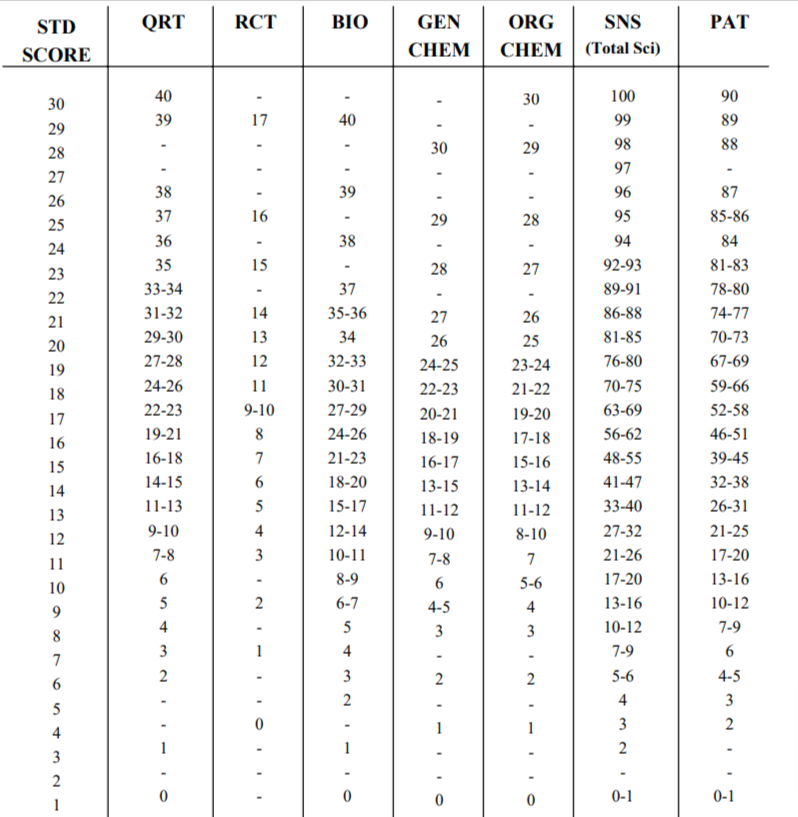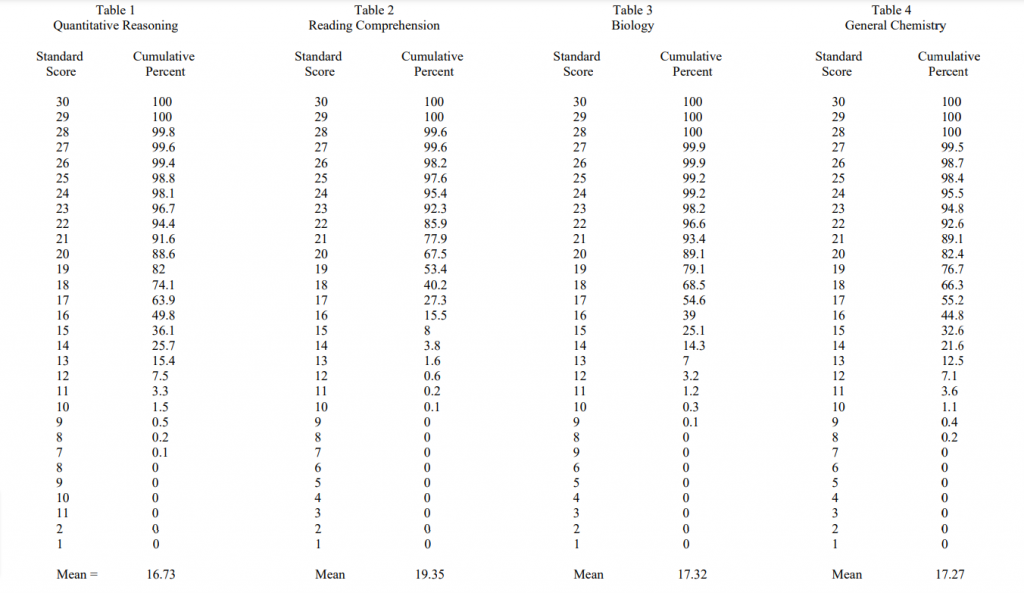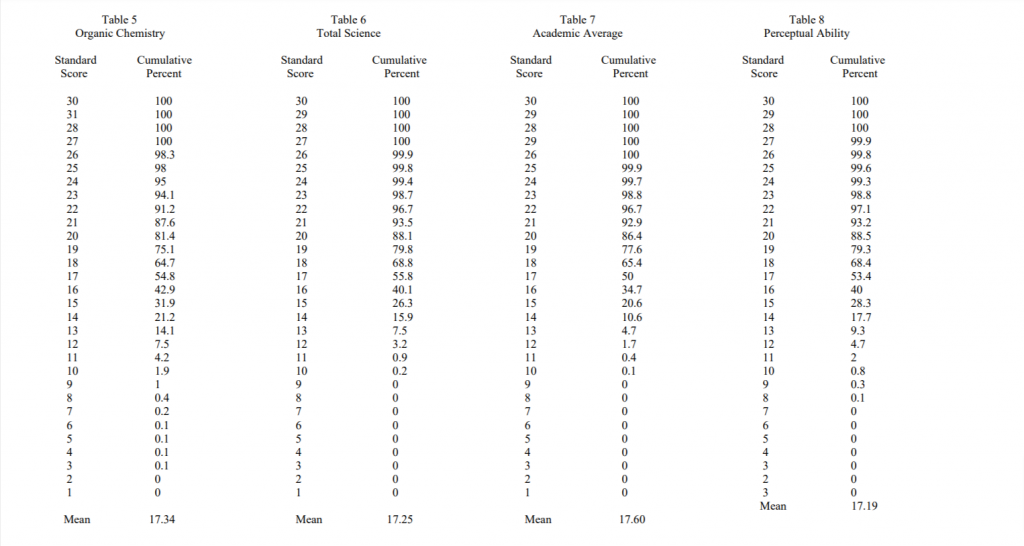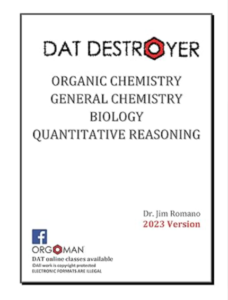Have you ever wondered about how the DAT is scored and what this might mean for your own dental career? In many cases, it’s easy to overlook the importance of this decision. Still, this shouldn’t be something you have to worry about too much. Indeed, while the DAT can significantly impact your dental school admission, with the right approach, it’s manageable.
Luckily, today, we’re looking at everything you need to know to get started. Hopefully, this will help you feel a little more prepared for the DAT overall.
What we will cover?
What is the DAT?
Before looking any further, we first need to define the DAT and how it works. The DAT, otherwise known as the Dental Admission Test, is a specialist assessment. The results of the DAT are utilized by many dental schools across the United States and Canada as part of admission processes.
How Long Does the DAT Take?
The DAT assessment is a 4.5-hour long assessment that measures many different metrics of a dental candidate’s skills. The test itself is based on multiple-choice questions.
There are a total of 280 items assessed as part of the overall course. These are split across four different individual tests, with the greatest weighting being the first two:
– Survey of Natural Sciences
– Perceptual Ability
– Quantitative Reasoning
– Reading Comprehension
DAT assessments are available at Prometric Test Centers and are taken usually in the second semester of junior undergraduate years. The test covers numerous key points required for a career in dentistry, with organic chemistry being of particular focus throughout.
Scoring the DAT
The DAT is scored based on a simple assessment that monitors results between one and thirty. The average score for the DAT is around 18 points. However, the average score for students to get accepted into dental school is usually higher than the average. Most schools’ average for accepted students will be around 20-21 points. That’s not to say that students won’t get in with a lower score, however.
As standard, a composite score of 20-21 represents the 75th percentile for test takers. Meanwhile, scores of 25 represent the 98th percentile.
Score Types
The DAT assessment is scored based on several different metrics. This is important to keep in mind to help you learn more about how the DAT is analyzed.
The basic score is the “Raw Score,” which is the number of correctly answered questions overall. Every question carries the same weight in DAT assessments, meaning that there are 280 raw points available in total.
The scaled (standard) score is then calculated based on the difficulty of the test. This helps standardize results based on the ease or difficulty of the assessment for the year.
Finally, the composite score is a rounded mean score of each of the different sections within the DAT (excluding the PAT section). This is provided as part of the final score report.
In addition to the main scores, a Total Science Score also provides an overview of the subject’s grasp of biology and general/organic chemistry.
- Academic Average: This is your average score from the six subjects taken. (Biology General Chemistry Organic Chemistry Perceptual Ability Reading Comprehension Quantitative Reasoning)
- Total Science Score: This is your average score taken from just 3 out of the 6 categories above, which includes biology, organic chemistry, and chemical chemistry.

Every answer you provide is equivalent to 1 raw score, then they’re converted into your scaled scores, which will fall from 1 to 30.


What’s Considered a Good DAT Score?
When taking the test, you should aim for 19 to 20 points to be in the competitive range. These are points that are included in the top 25% DAT score percentile according to Kaplan test prep experts. However, if you want to have a better mark, aim for 22 and above.
| ACADEMIC AVERAGE | 21+ |
|---|---|
| SURVEY OF THE NATURAL SCIENCES | 21+ |
| BIOLOGY | 21+ |
| GENERAL CHEMISTRY | 22+ |
| ORGANIC CHEMISTRY | 22+ |
| QUANTITATIVE REASONING | 19+ |
| READING COMPREHENSION | 23+ |
| PERCEPTUAL ABILITY | 22+ |
Top 25% Score (75 Percentile Score)
| ACADEMIC AVERAGE | 19-20 |
|---|---|
| SURVEY OF THE NATURAL SCIENCES | 19-20 |
| BIOLOGY | 19-20 |
| GENERAL CHEMISTRY | 19-21 |
| ORGANIC CHEMISTRY | 19-21 |
| QUANTITATIVE REASONING | 17-18 |
| READING COMPREHENSION | 21-22 |
| PERCEPTUAL ABILITY | 20-21 |
50 Percentile Score
| ACADEMIC AVERAGE | 18 |
|---|---|
| SURVEY OF THE NATURAL SCIENCES | 17-18 |
| BIOLOGY | 17-18 |
| GENERAL CHEMISTRY | 17-18 |
| ORGANIC CHEMISTRY | 17-18 |
| QUANTITATIVE REASONING | 15-16 |
| READING COMPREHENSION | 19-20 |
| PERCEPTUAL ABILITY | 18-19 |
Unscored Questions
While the DAT is assessed out of 280 points, there are more than 280 questions in the test. This means that some of the questions within the test are not marked (although these are not indicated to the assessor).
What Score Do I Need to Get Into Dental School?
Unfortunately, there is no simple way to define the score you need to get into dental school since this depends on many scenarios. On the whole, a score of around 21 will usually be enough to be competitive, putting you roughly among the top 25th percentile for students. However, some dental schools may accept students with a score of around 18, in the 50th percentile.
You can watch our detailed coverage on this topic below.
Alas, there’s no simple way to say what score a dental school will accept since it depends on many different factors. These include the amount of competition for places. For example, in a year with fewer applicants, you might be more likely to get in with a lower score. You will also need to put your best foot forward still in other aspects of your application, too.
Preparing for the DAT with Right Test Prep Materials
If you need to take a DAT, making sure you’re fully prepared is highly important to choose the right test prep courses.
Both DAT Booster and DAT Bootcamp numerous excellent videos across all 6 topics, realistic practice tests, question banks, flashcards helping prepare learners fully for their upcoming assessment. Depending on your area of weakness, you can pick one or the other. You can check our detailed comparison here.
- Best PAT and Biology section in the market.
- Realistic Practice Test.
- Impressive PAT problem creation and analysis tools.
- Engaging video lessons in easily digestible portions
- Excellent comprehensive study materials with visual aids, such as graphics
- Around 9000 Practice problems that closely resemble the real thing
- Ask AI feature to address your query instantly.
- Limited one-on-one coaching with expert tutors
- Offers a guarantee for a higher score
- Anki deck from Booster is quite useful for Chemistry.
- Apps for both Android and iOS with modern interfaces.
FAQs
At this point, we’ve looked at some of the main things you need to know about the DAT – but if you still have any further questions, the following FAQs may help outline the key things you need to know.
Indeed, the DAT is a relatively straightforward process to understand. Still, there are plenty of simple ways that you can boost your chances of success. In line with this, knowing the key features of the DAT to begin with is vital.
Q1. What is the meaning of DAT for dentists?
The DAT stands for the Dental Admission Test. This assessment must be completed prior to an individual being able to begin studying dentistry with many US and Canadian dental schools.
Q2. What does the DAT test consist of?
The DAT consists of over 280 multiple choice questions focused around scientific topics. The main sections of the DAT test are Survey of the Natural Sciences, Perceptual Ability, Reading Comprehension, and Quantitative Reasoning. In addition to these questions, the DAT also includes several unmarked questions that help the development of future assessments.
Q3. What DAT Score do I Need to Get Into Dental School?
If your dental school requires a DAT assessment, you’ll ideally want to be within the top percentile to give an incredibly high chance of success. A score of around 21 will usually give you a good chance, as this represents the top 25% of students; however, a score of 22 or higher will further boost your chances. Nonetheless, that’s not to say that a lower score will be immediately rejected.
Q4. How Long Do People Study for the DAT?
Before taking your DAT, it’s important to study and prepare overall. With this thought in mind, the majority of people will spend around three or four months preparing for their DAT. However, if you want to spend longer studying, it certainly won’t ‘hurt!
Q5. How Many Times Can I Take a DAT?
You can usually take the DAT three times, following which point permission from the ADA may be required for additional tests. If you don’t get the score you wanted on your first DAT, you can try again after ninety days have passed from the time of your last test.
Q6. What is a Very High Score on the DAT?
If you’re taking the DAT, it’s worth knowing the different grade boundaries and how the scoring system works. Generally speaking, a score of 23 or above is classed as a very high score. However, scores of 19 and above may be enough to get you into dental school overall.
Q7. Is it Possible to Get a Score of 30 on the DAT?
Technically speaking, getting a score of 30 on the DAT assessment is possible. However, in reality, this has yet to happen at the time of writing. In fact, thus far, the highest score that has ever been achieved on a DAT assessment was 28, which was achieved in the 2000s. Generally speaking, a more realistic high-scoring goal is 25 or above, which represents the 98th percentile (top 2% of entrants).
Q8. Can I Use a Calculator During the DAT Assessment?
Good news: you’ll be provided with one on a computer screen if you need to use a calculator for your assessment. However, DAT takers cannot bring their own calculator from home to use in the examination.
Q9. Is There a Lot of Organic Chemistry on the DAT?
The DAT assessment has a relatively significant amount of organic chemistry and other biology and chemistry-focused topics. As part of the Natural Sciences assessment, you will need to complete around 30 organic chemistry-focused questions. These include topics such as acids and bases, reactions, molecule properties, and reaction mechanisms.
Q10. How Much Maths is Involved with the DAT?
There’s a decent amount of maths involved with the DAT examination. However, this is generally just college-level, and you shouldn’t usually have to complete any calculus-based questions during your assessment. This may still pose a challenge if you haven’t practiced, though.
Final Thoughts
If you have been looking to apply to a dental school, there is a high likelihood that you will need to complete the DAT. With this thought in mind, before you undertake the assessment, start by completing the necessary preparations overall.



Review Summary
User Reviews
There are no reviews yet. Be the first one to write one.
Share Your Experience